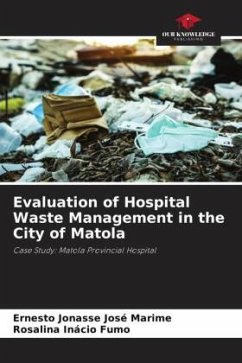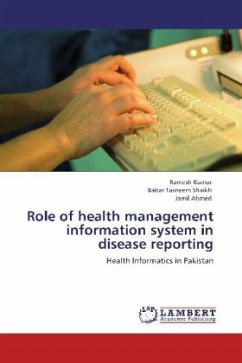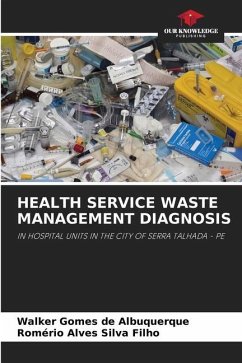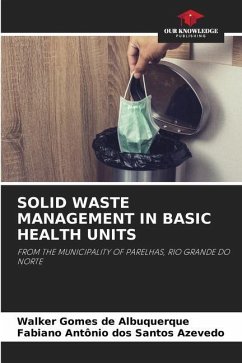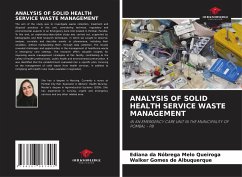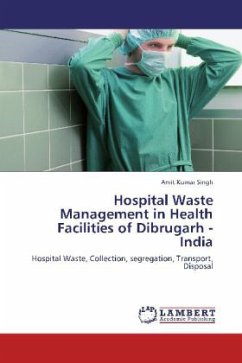
Hospital Waste Management in Health Facilities of Dibrugarh - India
Hospital Waste, Collection, segregation, Transport, Disposal
Versandkostenfrei!
Versandfertig in 6-10 Tagen
45,99 €
inkl. MwSt.

PAYBACK Punkte
23 °P sammeln!
In the recent years the increased use of disposable material and the presence of dreaded disease like Hepatitis B and AIDS, it is of utmost importance to take care of the infected and hazardous waste to save the mankind from disaster. The Health care institutions or hospitals, which are responsible for care of morbid population, are emitting voluminous quantity of rubbish, garbage and Bio Medical Waste matter each day from wards, operation theatre and outpatient areas. Proper management of hospital waste is essential to maintain hygienic, aesthetics, cleanliness and control of environmental po...
In the recent years the increased use of disposable material and the presence of dreaded disease like Hepatitis B and AIDS, it is of utmost importance to take care of the infected and hazardous waste to save the mankind from disaster. The Health care institutions or hospitals, which are responsible for care of morbid population, are emitting voluminous quantity of rubbish, garbage and Bio Medical Waste matter each day from wards, operation theatre and outpatient areas. Proper management of hospital waste is essential to maintain hygienic, aesthetics, cleanliness and control of environmental pollution. The greatest risk of Biomedical waste is from infectious and sharp components of the waste, because health care workers, and people associated with handling waste are often getting needle prick injuries and can contract HIV/AIDS, hepatitis B and C.




